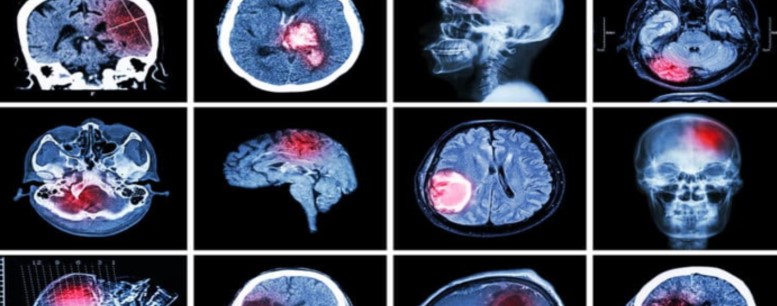

Brain injuries are common injuries that occur in a variety of ways, from sports accidents to car accidents. When you have a brain injury, you may experience different symptoms depending on which type of brain injury you sustained and how severe it is.
There are several different types of brain injuries, along with three distinct levels of severity.
Types of Brain Injuries
The four most common types of brain injuries include concussions, penetrating brain injuries, anoxic brain injuries and contusions, and diffuse axonal injuries (DAIs).
Concussion
Concussions are frequently caused by either blunt force trauma or closed head injuries.
Closed head injuries often occur during incidents that result in the brain bouncing around within the skull. This causes damage to blood vessels and brain tissues. Some incidents that could cause closed head injuries include falls and rear-end accidents.
Penetrating Brain Injury
Penetrating brain injuries happen when an object penetrates the skull and enters the brain. This type of injury causes bleeding and other issues in the brain.
Anoxic Brain Injury and Contusion
Anoxic brain injuries are caused by a lack of oxygen to the brain, such as in the case of drowning.
Contusions happen when the brain strikes the skull, causing bruises on the brain. This might seem similar to concussions, but they’re actually different injuries. Contusions are essentially synonymous with bruises, while concussions describe the widespread brain trauma that happens from a blow to the head.
Diffuse Axonal Injury
A DAI starts with an incident that causes the brain to shift within the skull, but it results in the long connecting fibers being torn from the brain. DAIs can cause severe brain damage.
Three Levels of Severity
The three levels of severity for traumatic brain injuries are mild, moderate, and severe.
Mild TBI
A concussion is an example of mild TBI. This level of severity typically doesn’t cause loss of consciousness. Symptoms may include:
- Nausea
- Vomiting
- Vision problems
- Trouble remembering or thinking clearly.
- Balance issues
- Dizziness
- Headaches
Mild TBIs typically self-heal within a few weeks.
Moderate TBI
A moderate TBI can cause unconsciousness for anywhere from 30 minutes to 24 hours. They include all the symptoms of a mild TBI with the addition of numbness, seizures, weakness in the limbs, and the inability to wake up from sleeping.
Severe TBI
A severe TBI is one that causes loss of consciousness for more than 24 hours. The symptoms of a severe TBI are similar to a mild or moderate TBI, but generally more extensive. It’s important to seek immediate medical attention for a severe TBI.
Managing Traumatic Brain Injuries with Regenerative Medicine
Sustaining a brain injury can feel overwhelming. But regenerative medicine, also known as stem cell therapy, is showing promise in helping to manage TBIs of varying severity. Regenerative medicine treatments have the opportunity to help replace brain cells that are damaged by accidents, indicating the potential for partial or even full recovery.
Mesenchymal stem cells (MSCs) have shown promising potential in the treatment of traumatic brain injury (TBI). They have the ability to self-renew and differentiate into different cell types, including neurons, astrocytes, and oligodendrocytes, which are crucial for brain tissue repair and regeneration.
The mechanisms by which MSCs exert their therapeutic effects in TBI are:
Anti-inflammatory effects: MSCs can modulate the inflammatory response in the injured brain by releasing various anti-inflammatory factors. They can inhibit the activation of immune cells, reduce the production of pro-inflammatory cytokines, and promote the secretion of anti-inflammatory cytokines.
Neuroprotection: MSCs can secrete neurotrophic factors that promote neuronal survival, enhance neuroplasticity, and support the growth of new blood vessels. These factors can protect injured neurons from further damage and promote their recovery.
Immunomodulation: TBI often leads to an imbalance in the immune system, with an excessive inflammatory response and impaired tissue repair. MSCs can modulate the immune response, promoting a shift from a pro-inflammatory to an anti-inflammatory environment, which can facilitate tissue healing and regeneration.
Angiogenesis: MSCs can stimulate the formation of new blood vessels (angiogenesis) in the injured brain. Improved blood supply to the damaged area can enhance tissue repair and provide necessary nutrients and oxygen to support the healing process.
Talk to a regenerative medicine specialist if interested to explore this option for yourself or a loved one.
This post was written by a medical professional at Stemedix Inc. At Stemedix we provide access to Regenerative Medicine. Regenerative medicine has the natural potential to help improve symptoms sometimes lost from the progression of many conditions. Click here to learn more.









